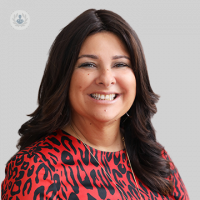PROSCIG®: how to develop your child's social communication skills
Written in association with:As a parent of a child who displays difficulties with social communication skills and who is on the autism spectrum, it can be frustrating trying to help your little one stay focused and organised at mealtimes, with homework, playtime and going to bed.
One of our top neuropsychologists Dr Debora Elijah specialises in working with a wide range of age groups of children who are living with Asperger’s or ADHD/ADD. Dr Elijah has created her unique social cognitive intervention program (PROSCIG®) for children who are in need of help with their development and here, tells us all about it.

What is PROSCIG®?
The program is built on the basis of cognitive behaviour therapy (CBT) and Spence’s theoretical framework. The objective of the program is to promote social cognitive skills, such as attention, memory and thinking, in three important areas:
- Social awareness – your child should be able to tune into their feelings, thoughts and actions (private self-awareness) and also recognise how other people see them (public self-awareness).
- Self-regulation – the child has the ability to understand and manage behaviour and reactions to feelings and events happening around them. It includes being able to calm down after something exciting or upsetting or focusing on a task.
- Social problem solving – means that your child can change or adapt to “problem” situations that come up in their day-to-day life, such as not getting the coloured pencils that they want in class, or being told to put something away.
What makes the PROSCIG® program unique?
The program is unique because it creates new strategies for ‘social problem solving’ situations, such as those that are likely to arise in an educational, home and community settings. It also reconfigures the social roles, identity and self-esteem of the child in a social-emotional process.
The child learns to establish a new social identity in the group to resize their communication, self-confidence, assertiveness and to even raise their level of cooperation and interaction in a group setting. The program also:
- Works on building and exercising the plasticity of the child’s brain, breaking the paradigm of the brain to create neurone connections as they learn new things and concepts.
- Makes a long-term effort to select the most important skills needed and to increase the good results in the interactions of young people.
- Takes into consideration cultural issues and targets skills which are selected according to what is culturally appropriate.
- Group leaders aim to include the participation of all group members and target specific behaviours in teenagers and young people so that they develop their own thinking rationale for cognitive skills.
How long does the program last?
In order to ensure long-lasting improvement in psychosocial functioning, for some children, a few weeks of intervention may not be enough. In these cases, the training of social skills is prolonged for months, or in chunks of sessions.
In some children, the social skills program should be conducted in an uninterrupted manner day-by-day and not limited to brief clinical sessions.
Teachers and parents should play a role in psycho-skills training, both inside and outside of the sessions in order to give cues that reinforce psychosocial responses.
Which ages are suitable for the PROSCIG® program?
The PROSCIG® intervention program takes place in the following groups:
- Pre-linguistic, 18 months to three years old.
- Early intervention, children from the ages of two to five.
- Children who are five to eleven years old (intermediate).
- Transition from primary to high school (advanced).
- Transition from high school to college.
- Teenagers and adolescents.
- Young adults.
Who is an ideal candidate for this therapy?
We work with mild children, teenagers and young adults with social communication skill-challenges, self-regulation and sensory/auditory processing challenges.
Where does the PROSCIG® intervention take place?
The intervention program takes place at The Elijah Social Cognitive Skills Centre in London. The centre works closely with the school that the child attends to help transfer the skills taught at the centre into the child’s classroom and home.
If you think the PROSCIG® program is something that your child needs to be a part of, do not hesitate to book an appointment at Dr Elijah’s centre now.


